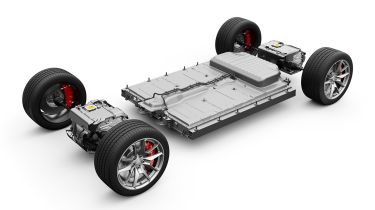Stellantis solid-state EV battery 'breakthrough' to bring more range and faster top-ups
Car making giant is teaming up with US specialist to demo advanced new cells next year

Stellantis has announced plans to demonstrate solid-state batteries in 2026 after a successful ‘breakthrough’ validation of the technology.
The parent company of major car brands such as Vauxhall, Peugeot, Citroen and Fiat invested 75 million dollars (roughly £56m) in US-based solid-state battery specialist Factorial Energy back in 2021. Since then, the pair have worked towards a five-year goal of introducing solid-state batteries into electric vehicles.
“Reaching this level of performance reflects the strengths of our collaboration with Factorial,” said Ned Curic, Stellantis Chief Engineering and Technology Officer. “This breakthrough puts us at the forefront of the solid-state revolution. We continue working together to bring us closer to lighter, more efficient batteries that reduce costs for our customers.”
Unlike the lithium-ion batteries that conventional EVs currently use, solid-state batteries have a capacity for higher energy density – essentially resulting in more range and quicker charging speeds.
Tesla’s latest 4680 battery technology, for example, has an energy density of 244Wh/kg; Stellantis’ solid-state demonstrator’s density stood at 375Wh/kg after completing 600 charging cycles. Stellantis claims a 15 to 90 per cent top-up will take 18 minutes.
The solid-state cells should also weigh less than comparable lithium-ion batteries and will also deliver a higher power output, with Stellantis noting their ability to support “greater performance demands in electric vehicles”. The battery can perform in temperatures ranging from -30 degrees to 45 degrees Celsius.
While Stellantis says its latest validation “marks a significant step forward on the path to bringing next-generation electric vehicle (EV) batteries to market”, it is not committing to a date when we might see production-ready solid-state battery-powered vehicles. However, it does intend to build a demonstration fleet with Factorial next year for “assessment of performance in real-world driving conditions”.
While we’ll see road tests of solid-state battery vehicles in the next 18 months, Stellantis’ latest STLA platform (which was only introduced in 2023) isn’t expected to be compatible with the new technology.
Come and join our WhatsApp Channel for the latest car news and reviews...
Find a car with the experts




